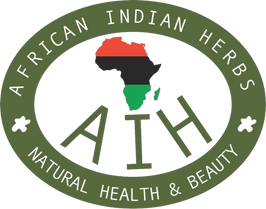- Your cart is empty
- Continue shopping
I. Introduction to African Herbs and Relaxation
African traditional medicine encompasses a treasure trove of herbs known for their relaxation-inducing properties. In this article, we delve into the world of African herbs specifically tailored to promote relaxation, exploring their historical significance, cultural relevance, modern applications, and the challenges and opportunities they present.
II. The Significance of Relaxation in African Culture
A. Historical Roots of Relaxation Practices
The concept of relaxation has deep historical roots in African culture, where rituals, ceremonies, and herbal remedies have long been used to unwind, de-stress, and rejuvenate the mind and body.
B. Cultural Importance of Relaxation
Relaxation isn’t just seen as a luxury but as an integral part of holistic well-being in African societies. It’s often intertwined with spiritual practices, community gatherings, and familial traditions, highlighting its profound cultural significance.
III. Common African Herbs for Relaxation
A. Kava Root: The Calming Brew
Kava root, traditionally consumed as a calming tea or tincture, is renowned for its ability to induce relaxation, reduce anxiety, and promote restful sleep.
B. Chamomile: Soothing Tea for Mind and Body
Chamomile, with its gentle floral aroma, is a popular choice for soothing nerves, alleviating stress, and promoting relaxation before bedtime.
C. Lavender: Aromatic Relaxation Aid
Lavender, both in essential oil form and as a tea infusion, is prized for its calming effects, helping to ease tension and anxiety and promote relaxation.
D. Passionflower: A Natural Stress Reliever
Passionflower is known for its mild sedative properties, making it a valuable herb for reducing stress and anxiety and promoting relaxation without drowsiness.
E. Valerian Root: Herbal Sedative for Deep Relaxation
Valerian root, often used in tinctures or capsules, is a potent herbal sedative that aids in achieving deep relaxation and improving sleep quality.
F. Lemon Balm: Relaxing Nerve Tonic
Lemon balm, with its citrusy scent, acts as a gentle nerve tonic, calming the mind, uplifting the mood, and promoting relaxation.
IV. Traditional Practices and Rituals
A. Herbal Baths and Steam Treatments
Herbal baths infused with relaxing herbs like chamomile, lavender, and lemon balm are common in African traditional medicine, offering a therapeutic way to unwind.
B. Relaxation Ceremonies and Meditations
Ceremonies incorporating meditation, breathing exercises, and herbal rituals create sacred spaces for relaxation, inner peace, and spiritual rejuvenation.
C. Herbal Smoking and Aromatherapy
The burning of herbs such as lavender, sage, and rosemary in rituals or for aromatherapy purposes aids in relaxation, cleansing energies, and promoting mental clarity.
V. Modern Applications and Research
A. Scientific Validation of Herbal Relaxants
Modern research continues to validate the effectiveness of African herbs for relaxation, leading to their incorporation into mainstream wellness practices and products.
B. Incorporation into Wellness Products
African herbs for relaxation are increasingly being used in products like teas, supplements, essential oils, and skincare formulations, catering to diverse relaxation needs.
C. Impact on Mental Health and Well-Being
The use of herbal relaxants has shown promising results in managing stress, anxiety disorders, insomnia, and promoting overall mental health and well-being.
VI. Challenges and Future Directions
A. Sustainability and Conservation
The growing demand for African herbs raises concerns about sustainable harvesting practices, biodiversity conservation, and ethical sourcing to ensure long-term availability.
B. Integration with Modern Medicine
There’s a need for greater integration and collaboration between traditional herbal practices and modern medicine to optimize relaxation therapies and ensure their safety and efficacy.
C. Cultural Preservation and Global Awareness
Preserving the cultural heritage associated with African herbs for relaxation while raising global awareness about their benefits fosters appreciation, respect, and sustainable utilization.
Conclusion:
In conclusion, African herbs offer a treasure trove of relaxation-inducing remedies deeply rooted in culture, history, and nature. Embracing these herbs not only promotes personal tranquility but also supports cultural preservation, sustainability, and holistic well-being.

